Scallops, the seafood dish and not the type of creamed casserole meal, are a species of saltwater clam divided into two different edible parts, of which the meat contained inside the shell is the portion primarily consumed.
With a distinctly umami taste and a firm texture, scallops are popular throughout much of the western world and parts of Asia, wherein they are cooked in a variety of ways such as smoking or even served raw as sashimi.
Because of the fact that scallops are a seafood product and therefore organic in nature, they possess a relatively short shelf-life, even when undergoing treatment with sodium tripolyphosphate. As such, it is best to freeze them in order to extend the length of time that they may remain edible.
Does Freezing Ruin Scallops?
Despite the fact that scallops are quite high in water content owing to their underwater habitat and the fact that they are a living organism, scallops actually freeze quite well, with only a minimal reduction in texture and flavor after an extended period in the freezer.
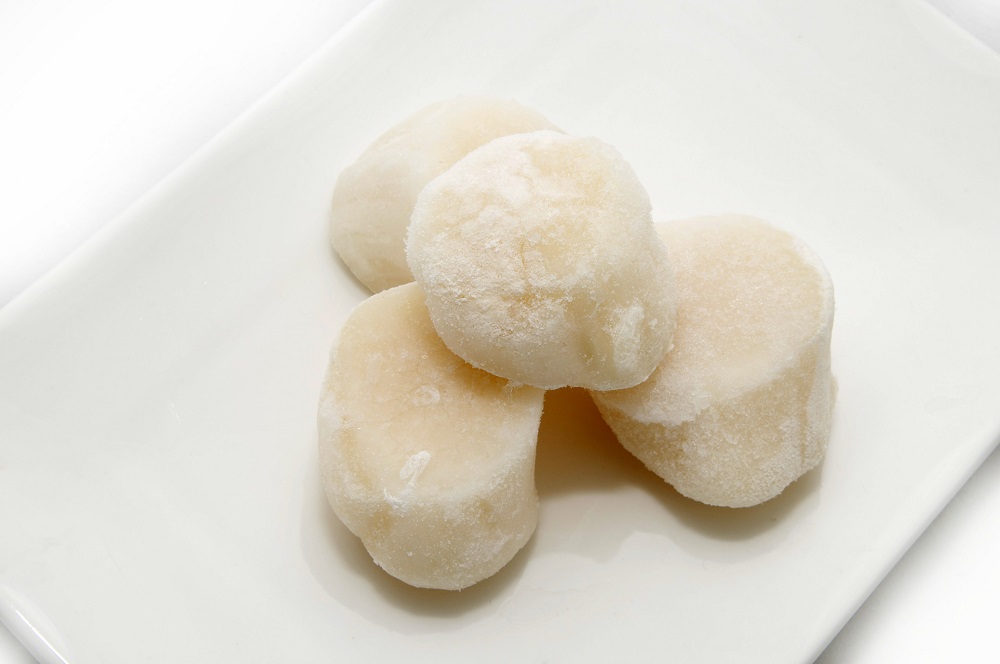
Of course, food in their freshest form is always best, and scallops are best enjoyed straight from the market or fishery, as even the most convoluted and advanced storage techniques will not keep scallops at their absolute one-hundred percent quality for long.
In order to preserve them as close as possible to their top quality, however, there are certain steps that may be taken, as will be detailed later in this article.
Can You Clean Scallops Before Freezing?
The answer to this question depends entirely on the nature of how you purchased your scallops, or if you have even purchased them at all.
Fresh-caught scallops and those purchased still in their shells should be washed thoroughly and removed from the shell prior to freezing in order to facilitate their storage as well as provide a more stable shelf-life.
However, if you have purchased the scallops already shelled and vacuum packed or otherwise packaged and likely already cleaned, there is no need to wash them once more, and simply placing them in the freezer is suitable enough.
As always, first allow the scallops to dry somewhat or otherwise pat them lightly with a cloth towel to soak up any excess water that may be on their surfaces, as these can form ice crystals that fuse the scallops together and make defrosting them more difficult to do.
How to Freeze Scallops
If you have purchased scallops in their vacuum-packed form or otherwise in a sterile storage container, the best thing you can do to maintain their shelf-stability is to leave the packaging intact. Simply leave the package of scallops in the freezer for up to three months or until the best-by date printed on the packaging.
However, if you must, it is entirely possible to package the scallops yourself instead.
To do so, simply wrap the scallops in several layers of resealable plastic wrap, alternating directions in order to achieve a complete coverage. Now completely swathed in plastic, move the wrapped scallops to a second container, preferably made of a freezer-safe and non-odor-absorbent material, such as glass or treated plastic.
Place this container of scallops in the deepest part of your freezer, preferably far away from any freezer vents or fans, as these will cause freezer burn and damage the scallop’s physical integrity.
These scallops may last for up to three months as well, though we recommend cooking and consuming them sooner than this point in time.
Is it OK to Freeze Scallops that have Already Been Frozen Previously?
In the event that you have removed too many scallops from the freezer and have already thawed them completely, it is not a wise choice to return them to the freezer, as this subsequent refreezing will significantly alter their texture.
This concept also applies if you have purchased the scallops frozen and have allowed them to completely thaw before placing them in your freezer. In this case, it is better to either cook them before freezing or to place them in the refrigerator instead.
How Long Do Scallops Last at Room Temperature?
According to an informational bulletin posted by the U.S. Department of Agriculture, the temperature range of 40°F to 140°F is considered the “danger zone”, at which bacteria and fungi can best propagate entirely uninhibited.
Considering the fact that the average room temperature range is between that of 68°F to 72°F, this lands in the immediate center of said danger zone, placing most organic foods stored this way in a precarious position unless they.
In terms of preserving scallops, this equates to the fact that any sort of seafood will not last very well at room temperature. In fact, if not immediately cooked or preserved, it is a good idea to first inspect your scallops should they have been left on the counter-top or kitchen table for even a short period of time.
Even stored in an air-tight container, scallops will only last for up to two hours at room temperature before becoming likely inedible and harmful to eat.
If a refrigerator or freezer is not available or you are simply leaving the scallops at room temperature prior to cooking, it is best to leave the scallops in their storage container and to place it in a bowl full of ice so as to reduce the speed at which microorganisms will reproduce.
How Long Do Scallops Last in the Fridge?
A far better method of storage than simply leaving the scallops in a bowl of ice at room temperature, refrigeration will keep scallops edible for up to two days with none of the minor flavor or textural degradation that occasionally occurs when scallops are frozen.
Ideally, if you have purchased the scallops pre-washed and vacuum sealed or otherwise stored in an air-tight container, it is best to simply refrigerate them as they are.
However, if the scallops have been purchased directly from a fishery or you yourself have caught them, it is important to first shuck and wash them prior to refrigeration.
This is done in order to prevent the scallops from spoiling prematurely as well as to reduce the risk of introducing new strains of bacteria and fungi to the environment of your refrigerator.
Now deshelled and thoroughly washed of any debris or sand, either use a vacuum-packing machine to seal the scallops completely or otherwise store them dry in a resealable plastic pouch. Leave the packed scallops in the driest part of the fridge and keep careful track of how long it has been since they were purchased or harvested.
Do not store the scallops submerged in any sort of liquid unless it is a marinade high in sodium or acidity. Even then, doing so will still shorten its shelf-life somewhat.
Can You Refrigerate Cooked Scallops?
The process of cooking food often results in the disabling or death of many of the harmful bacteria and fungi that may be present in the food or on its surface, making it both safer to eat and essentially “resetting the clock” in terms of the food’s shelf life.
As such, refrigerating cooked scallops is an excellent way to extend its shelf-life beyond that of what it would be uncooked. However, doing so will require a few simple steps.
As always, it is best to consume the cooked scallops fresh in order to best enjoy their top quality, as even the most impeccable storage conditions will not keep the scallops at their best for very long.
First, allow the scallops to cool completely prior to refrigerating. This is done to prevent the formation of condensation and steam, which will not only accelerate the spoilage of the scallops but also may affect other food stored in your refrigerator.
Once cooled, wrap the scallops in several sheets of aluminum foil or plastic cling wrap, alternating directions with each sheet in order to cover all angles and prevent airflow.
Place the wrapped and cooked scallops in an air-tight container free of moisture or odors. This container must be stored in the driest portion of your freezer.
In the ideal conditions, the cooked scallops may last for up to four days without spoiling.
References
1. Whitney, D.W. (1890) Scallop The Century Dictionary: An Encyclopedic Lexicon of the English Language p.5371, Century Company, and (2009) The Oxford English Dictionary, Second Edition, Oxford University
2. Unknown Author. (June 2017) “”Danger Zone” (40 °F – 140 °F)” U.S. Department of Agriculture Food Safety and Inspection Service

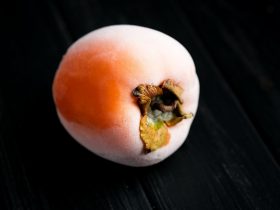
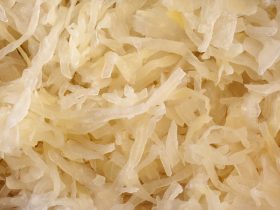
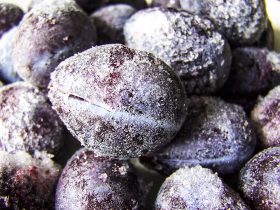
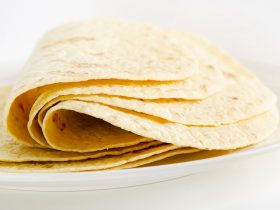
Hi, I'm Dom
Dom Eats was started to help other people fall in love with food. While cooking can feel intimidating, it doesn't have to be.